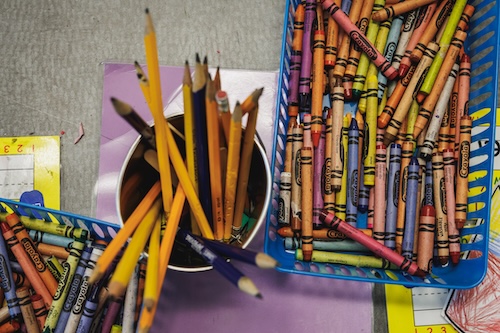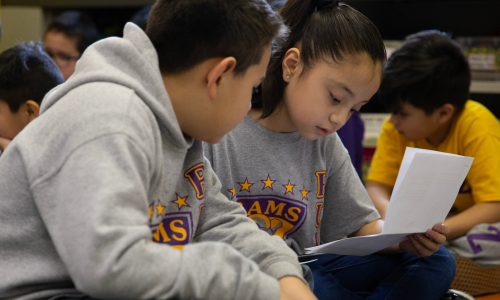
NWEA is pleased to present the fourth installment in our ongoing exploration into public perceptions of K-12 assessment. In this newly commissioned report from NWEA and Gallup – Assessing Soft Skills: Are We Preparing Students for Successful Futures? – we investigate the perception of assessments from parents, teachers, and school administrators.
Parents, teachers, and administrators are in agreement about the importance of measuring students’ soft skills such as critical problem solving and teamwork, yet the views on which non-academic skills schools should teach, the ways they are fostered, and whether schools, families, or communities should play the primary role in helping children develop these skills vary widely among those surveyed for the report.
For this year’s report, Gallup conducted phone interviews and online surveys of more than 4,000 parents, teachers, principals and superintendents from across the United States. Exploring indicators of student success, the survey revealed that parents are optimistic about the quality of education today. A majority believe their children are receiving a better education than they did and are learning what they need to succeed in the future. However, they do not think the tests their children take are sufficient in measuring long-term outcomes.
When I read this report, I see opportunity. Parent optimism about assessments and education is encouraging. But where I see the most opportunity is in truly measuring what matters and ensuring that every assessment that exists today or is being created for tomorrow is relevant to well-rounded student learning. Because the truth is – our kids need both academic and non-academic skills to succeed. Non-academic skills like critical thinking are not developed in the abstract. The best kind of learning helps students simultaneously build knowledge and develop relevant skills, and teachers need assessments that help them identify next steps for students in both areas. NWEA is exploring pathways to making this a reality. We must continue our dialogue on this to create a future for assessment in which all students are able to fully realize their potential.
Here are some additional key findings from the report:
The Importance of Developing and Assessing Nonacademic Skills
- Over eight in 10 teachers (83%), parents (82%), superintendents (82%), and principals (83%) say it is equally important to assess both academic skills and nonacademic skills such as teamwork, critical thinking, and creativity
- Only about one in 10 teachers say that the formal and informal assessments used by their school to gauge nonacademic skills measure them “very well”
- When asked to describe what type of nonacademic skills schools should teach, interview respondents replied with a wide variety of life skills, ranging from character development attributes to interpersonal soft skills to functional life skills
- Although a majority of stakeholders believe it is very important for schools to measure nonacademic skills, many interview respondents said that those skills should be developed at home
Parent Perspectives on Schools, Assessments, and Students’ Future Success
- More than 60% of parents agree (27%) or strongly agree (34%) that their child is learning the necessary skills in school that will make their child successful in the future
- Only one in five parents (20%) say the assessments their child takes in school measure “very well” whether their child will be successful in college
- When asked to compare the quality of their K-12 education with their child’s education, over half of parents (52%) say the education their child is receiving is better than the education they received; just 22% said the quality was worse
Time Spent Taking and Communicating About Assessments
- While a majority of teachers and administrators say that too much time is spent on assessments, a majority of parents (59%) say students spend just the right amount of time or too little time taking assessments
- Most (52%) teachers say that just the right amount of time is spent communicating assessment results to parents, while a plurality of parents (46%) say that teachers spend too little time communicating results to parents
We’ll be diving into the report in future posts – stay tuned!








